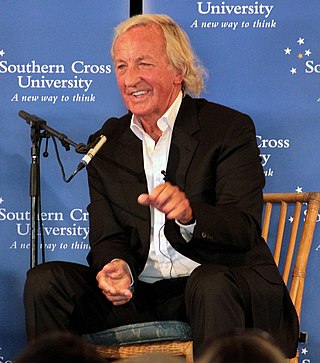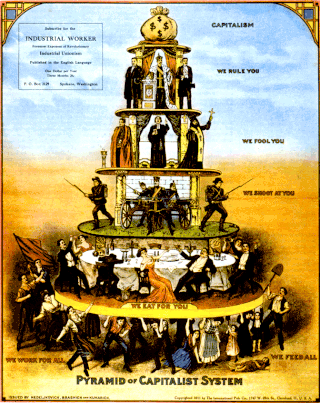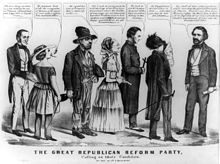Ad hominem, short for argumentum ad hominem, refers to several types of arguments that are fallacious. Typically this term refers to a rhetorical strategy where the speaker attacks the character, motive, or some other attribute of the person making an argument rather than attacking the substance of the argument itself. This avoids genuine debate by creating a personal attack as a diversion often using a totally irrelevant, but often highly charged attribute of the opponent's character or background. The most common form of this fallacy is "A" makes a claim of "fact," to which "B" asserts that "A" has a personal trait, quality or physical attribute that is repugnant thereby going entirely off-topic, and hence "B" concludes that "A" has their "fact" wrong - without ever addressing the point of the debate. Many contemporary politicians routinely use ad hominem attacks, which can be encapsulated to a derogatory nickname for a political opponent.
A tactic is a conceptual action or short series of actions with the aim of achieving a short-term goal. This action can be implemented as one or more specific tasks. The term is commonly used in business, byprotest groups, in military, espionage, and law enforcement contexts, as well as in chess, sports or other competitive activities.

John Richard Pilger was an Australian journalist, writer, scholar and documentary filmmaker. From 1962, he was based mainly in Britain. He was also a visiting professor at Cornell University in New York.

The pincer movement, or double envelopment, is a military maneuver in which forces simultaneously attack both flanks (sides) of an enemy formation. This classic maneuver has been important throughout the history of warfare.

Media Lens is a British media analysis website established in 2001 by David Cromwell and David Edwards. Cromwell and Edwards are the site's editors and only regular contributors. Their aim is to scrutinise and question the mainstream media's coverage of significant events and issues and to draw attention to what they consider "the systemic failure of the corporate media to report the world honestly and accurately".
Negative campaigning is the process of deliberately spreading negative information about someone or something to worsen the public image of the described. A colloquial, and somewhat more derogatory, term for the practice is mudslinging.
Character assassination (CA) is a deliberate and sustained effort to damage the reputation or credibility of an individual. The phrase "character assassination" became popular around 1930. This concept, as a subject of scholarly study, was originally introduced by Davis (1950) in his collection of essays revealing the dangers of political smear campaigns. Six decades later Icks and Shiraev (2014) rejuvenated the term and revived academic interest by addressing and comparing a variety of historical character assassination events.
In chess, a tactic is a sequence of moves that each makes one or more immediate threats – a check, a material threat, a checkmating sequence threat, or the threat of another tactic – that culminates in the opponent's being unable to respond to all of the threats without making some kind of concession. Most often, the immediate benefit takes the form of a material advantage or mating attack; however, some tactics are used for defensive purposes and can salvage material that would otherwise be lost, or to induce stalemate in an otherwise lost position.
A push poll is an interactive marketing technique, most commonly employed during political campaigning, in which a person or organization attempts to manipulate or alter prospective voters' views under the guise of conducting an opinion poll. Large numbers of voters are contacted with little effort made to collect and analyze their response data. Instead, the push poll is a form of telemarketing-based propaganda and rumor-mongering masquerading as an opinion poll. Push polls may rely on innuendo, or information gleaned from opposition research on the political opponent of the interests behind the poll.

A false flag operation is an act committed with the intent of disguising the actual source of responsibility and pinning blame on another party. The term "false flag" originated in the 16th century as an expression meaning an intentional misrepresentation of someone's allegiance. The term was famously used to describe a ruse in naval warfare whereby a vessel flew the flag of a neutral or enemy country in order to hide its true identity. The tactic was originally used by pirates and privateers to deceive other ships into allowing them to move closer before attacking them. It later was deemed an acceptable practice during naval warfare according to international maritime laws, provided the attacking vessel displayed its true flag once an attack had begun.
A whispering campaign or whisper campaign is a method of persuasion in which damaging rumors or innuendo are spread about the target, while the source of the rumors seeks to avoid being detected while they are spread. For example, a political campaign might distribute anonymous flyers attacking the other candidate. The tactic is generally considered unethical in open societies, particularly in matters of public policy. The speed and the anonymity of communication made possible by modern technologies like the Internet have increased public awareness of whisper campaigns and their ability to succeed. The phenomenon has also led to the failure of whisper campaigns, as those seeking to prevent them can publicize their existence much more readily than in the past. Whisper campaigns are defended in some circles as an efficient mechanism for underdogs who lack other resources to disclose wrongdoings of the powerful without repercussions.

Propaganda techniques are methods used in propaganda to convince an audience to believe what the propagandist wants them to believe. Many propaganda techniques are based on socio-psychological research. Many of these same techniques can be classified as logical fallacies or abusive power and control tactics.
Kompromat is damaging information about a politician, a businessperson, or other public figure, which may be used to create negative publicity, as well as for blackmail, often to exert influence rather than monetary gain, and extortion. Kompromat may be acquired from various security services, or outright forged, and then publicized by use of a public relations official.
Counterpropaganda is a form of communication consisting of methods taken and messages relayed to oppose propaganda which seeks to influence action or perspectives among a targeted audience. It is closely connected to propaganda as the two often employ the same methods to broadcast messages to a targeted audience. Counterpropaganda differs from propaganda as it is defensive and responsive to identified propaganda. Additionally, counterpropaganda consists of several elements that further distinguish it from propaganda and ensure its effectiveness in opposing propaganda messages.
Whataboutism or whataboutery is a pejorative for the strategy of responding to an accusation with a counter-accusation instead of a defense of the original accusation.
Isolation is often used to facilitate power and control over someone for an abusive purpose. This applies in many contexts such as workplace bullying, elder abuse, domestic abuse, child abuse, and cults.
Internet manipulation is the co-optation of online digital technologies, including algorithms, social bots, and automated scripts, for commercial, social, military, or political purposes. Internet and social media manipulation are the prime vehicles for spreading disinformation due to the importance of digital platforms for media consumption and everyday communication. When employed for political purposes, internet manipulation may be used to steer public opinion, polarise citizens, circulate conspiracy theories, and silence political dissidents. Internet manipulation can also be done for profit, for instance, to harm corporate or political adversaries and improve brand reputation. Internet manipulation is sometimes also used to describe the selective enforcement of Internet censorship or selective violations of net neutrality.
Disinformation attacks are strategic deception campaigns involving media manipulation and internet manipulation, to disseminate misleading information, aiming to confuse, paralyze, and polarize an audience. Disinformation can be considered an attack when it occurs as an adversarial narrative campaign that weaponizes multiple rhetorical strategies and forms of knowing—including not only falsehoods but also truths, half-truths, and value-laden judgements—to exploit and amplify identity-driven controversies. Disinformation attacks use media manipulation to target broadcast media like state-sponsored TV channels and radios. Due to the increasing use of internet manipulation on social media, they can be considered a cyber threat. Digital tools such as bots, algorithms, and AI technology, along with human agents including influencers, spread and amplify disinformation to micro-target populations on online platforms like Instagram, Twitter, Google, Facebook, and YouTube.
Abu Dhabi Secrets is an international investigation series revealing the United Arab Emirates’ influence strategy in Europe, particularly in France, by financing a smear campaign to target opponents of the UAE, that is, Qatar and the Muslim Brotherhood.
Mario Brero is an Italian private detective heading five companies registered in Geneva, Switzerland. In 1989 he founded Alp Services SA, a private investigation business, focusing on banks, law firms and wealthy clients with "advice, support, strategic guidance, diplomatic intermediation and organisation in crisis management and image reputation" and with "national and international investigations and inquiries, notably commercial and financial, in combating money laundering, counterfeiting, parallel markets, economic and/or computer crime; surveillance and protection of individuals and companies, crisis and risk management, asset searches, due diligence, auditing.






